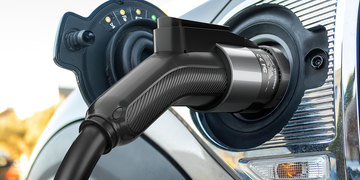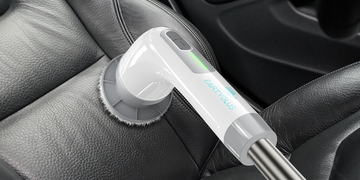Is it cheaper to ev charger for home?Many consumers worry about access to public charging stations while out and about. But as much as 90% of electric car charging is done overnight at home, which is almost always the cheapest way to charge an electric car.
With this shift, the need for reliable and convenient home charging solutions has become increasingly crucial. One common question among potential EV owners is whether it is cheaper to install an EV charger at home compared to relying on public charging infrastructure. In this article, we will explore the economic aspects of home EV charging to help you make an informed decision.
Initial Costs:
The cost of installing an EV charger at home involves both the purchase of the charging equipment and installation expenses. Several factors influence these costs, such as the type of charger, power capacity, and the complexity of the installation. Level 1 chargers, which use a standard household outlet, are generally more affordable but charge at a slower rate. On the other hand, Level 2 chargers, requiring professional installation and dedicated circuits, provide faster charging speeds.
While the initial costs can vary, it's important to consider potential incentives and rebates offered by governments or utility companies to offset the installation expenses. Many regions provide financial incentives to encourage the adoption of electric vehicles and associated charging infrastructure, making the initial investment more manageable for homeowners.
Charging Efficiency and Energy Costs:
The efficiency of home charging depends on the charger type, the vehicle's battery capacity, and the electricity rates in your area. Level 2 chargers are generally more energy-efficient than Level 1 chargers, allowing for faster charging times. Homeowners should also be aware of their local electricity rates, which can significantly impact the overall cost of charging.
In many cases, charging an EV at home is cheaper than using public charging stations, as home electricity rates are often lower, and there might be potential for time-of-use pricing benefits. Additionally, having control over your home charging allows you to take advantage of off-peak hours when electricity rates are typically lower.
Convenience and Time Savings:
Installing an EV charger at home offers the convenience of charging your vehicle overnight, ensuring it is ready for use each morning. This eliminates the need to visit public charging stations regularly, saving time and providing peace of mind. While public charging infrastructure is expanding, having a home charger provides a reliable and easily accessible option.
Long-Term Savings:
Over time, the cost savings associated with home EV charging can become significant, especially when compared to the ongoing expenses of using public charging stations. Additionally, the resale value of homes with dedicated EV charging infrastructure may increase, as it becomes an attractive feature for potential buyers in an increasingly electric vehicle-oriented market.

What Is the Cost to Charge an EV?
To accurately estimate the cost to charge an EV, it helps to have a recent electric bill for reference. For home charging, find your electric bill, then divide the [number] of kilowatt-hours you used into the bottom-line dollar total. That’ll give you the price you paid per kWh. Divide the total miles you drive each month by 3 to get the kWh you would use monthly. Multiply that number by your cost per kWh.
To put this into perspective and make it simpler, let’s use some averages to calculate what should be the average cost of EV charging. Suppose you drive at the American average of 1,124 miles per month. If using an EV, which gets an average of 3 to 4 miles per kWh (let’s use 3 in this case), you will use about 375 kWh a month. Using the U.S. household average of about 16 cents per kWh, charging an electric car at home would cost nearly $60 per month.
This amount is most likely lower than what you pay each month to buy gasoline.
Costs of Charging an EV at Home
Electricity rates are subject to many factors, including the region where you live, the time of year, and even the time of day when peak charges apply. For the most part, electricity usage and costs are at their lowest late at night when some utilities have special low rates for when their demand is lightest. That’s good news for anyone considering an EV.
Many consumers worry about access to public charging stations while out and about. But as much as 90% of electric car charging is done overnight at home, which is almost always the cheapest way to charge an electric car.
The Cost of Level 2 and Level 3 Charging - The Faster the Charging, the Higher the Rate
When talking about public Level 2 charging and Level 3 fast-charging systems, the prices are harder to narrow when compared to standard at-home costs. That’s because charging networks vary in price, not to mention availability around the country.
If you have a 240 outlet in your garage you can benefit from Level 2 charging, which is much faster than Level 1 charging. Many EV owners with a 240 outlet in their garage opt to install a Level 2 charger which offers even faster charging. The cost isn’t cheap - about $2,000 for parts and installation. Many states, local municipalities, and utility companies offer rebates and incentives for electric car owners to install home chargers, which help lower costs further.
Home charging is the best option for anyone considering an electric car. Yet, equally important is knowing where to find EV perks close to home. Unlike a typical 240-volt Level 2 home charger system, you will find Level 3 chargers in commercial settings because they’re prohibitively expensive for a private individual to install them at home.
Tesla uses its dedicated Supercharger network with more than 45,000 across the globe. But the rates can vary widely depending on region, timing, the Tesla model you’re charging, and the tier you choose for your recharge speeds. Tesla offers four charging tiers. One important caveat: Select Tesla Superchargers now work for non-Tesla vehicles.
Is it cheaper to ev charger for home? The decision to install an EV charger at home involves weighing initial costs, ongoing energy expenses, convenience, and potential incentives. While the upfront investment may seem significant, the long-term economic benefits, coupled with the convenience and potential incentives, often make home EV charging a cost-effective and practical choice for many electric vehicle owners.





